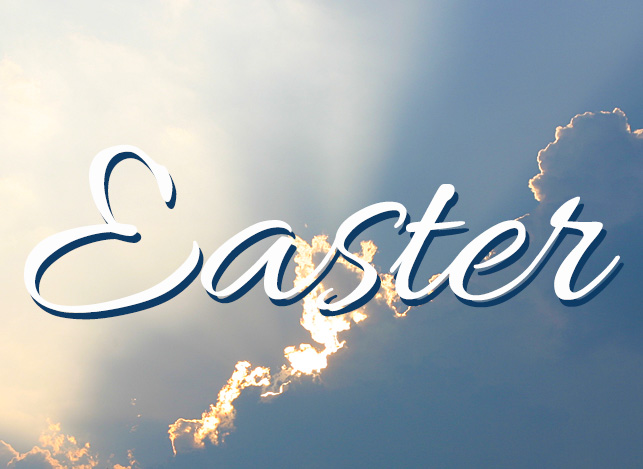
Easter is the most important liturgical season in Christendom as it celebrates resurrection of Jesus from the dead, described in the New Testament as having occurred on the third day of his burial after his crucifixion. It is the culmination of the Passion of Jesus, preceded by Lent .
In Western Christianity, Eastertide, or the Easter Season, begins on Easter Sunday and lasts seven weeks, ending with the coming of the fiftieth day, Pentecost Sunday.
In many churches – and this is growing in popularity in our Church – the traditional liturgical observation of Easter, begins on the night of Holy Saturday with the Easter Vigil. This service, which many persons regard as the most important liturgy of the year, begins in total darkness with the blessing of the Easter fire, the lighting of the large Paschal candle (symbolic of the Risen Christ) and the chanting of the Exultet or Easter Proclamation.
This service is probably the oldest feature of the Easter celebrations. From its earliest times the Church would keep watch through the night and meditate on the mighty works of God. Christians would pray until the earliest hours of the morning, when Christ’s resurrection was acclaimed. The Vigil is properly a service for the night and should never begin before sunset on Holy Saturday.
At the service, a number of readings from the Old Testament are read. These tell the stories of creation, the sacrifice of Isaac, the crossing of the Red Sea, and the foretold coming of the Messiah. This part of the service climaxes with the singing of the Gloria and the Alleluia and the proclamation of the Gospel of the resurrection. The Easter Vigil concludes with the celebration of the Eucharist.
Some churches prefer to keep this vigil very early on the Sunday morning instead of the Saturday night to reflect the gospel account of the women coming to the tomb at dawn on the first day of the week. Some churches have these services at 5 am. Whatever time they are held, services on Easter Sunday are normally full as all confirmed Anglicans have an obligation to attend service and to take communion on that day in commemoration of the resurrection of Jesus Christ which is the belief on which the Christian Church was founded.
A Happy Easter to you all!
– John Aarons


